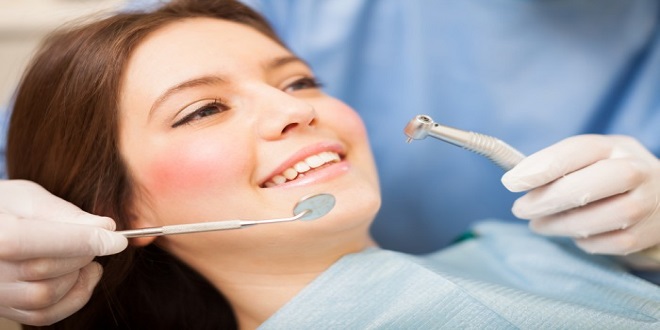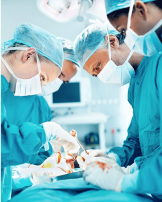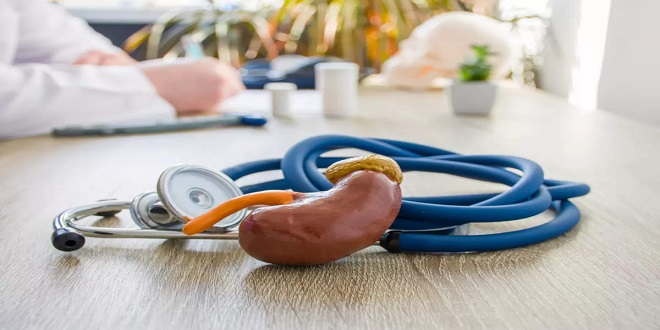A Step-by-Step Guide for Diagnosis and Treatment for Depression

Depression is a serious mental illness that impacts millions worldwide and can severely affect their quality of life.
It is essential to know how to diagnose and treat depression so you or someone you care about can get the help they need as soon as possible. TMS treatment Los Angeles is a safe and effective option for treating depression without using medications.
This blog post will offer a step-by-step guide for diagnosis and treatment, with insight from medical professionals, to provide as much information as possible on this topic.Image
What is Depression, and What Are the Symptoms
Also known as major depressive disorder, depression is a severe mental health condition characterized by persistent sadness and a decline of interest in activities that were once enjoyable. If left untreated, severe depression can have serious consequences.
It is important to reach out for help if you believe you are experiencing depression symptoms and discuss them with your healthcare provider.
Symptoms of depression are similar to that of other mental disorders, which include:
- Feeling down most of the time
- Changes in weight or appetite
- Difficulty sleeping or oversleeping
- Feeling agitated, restless, or slowed down
- Fatigue and low energy
How is Depression Diagnosed
The National Institute of Mental Health provides depression symptoms criteria that medical professionals use to identify the persistent depressive disorder. Furthermore, a depressive disorder must exhibit five or more major depression symptoms that significantly interfere with daily activities for a professional assessment.
Medical professionals typically begin by asking questions about how the individual is feeling, how long they’ve been feeling this way, and any attempts to ease depression symptoms or prevent depression.
Anguish
Anguish is a highly distressing symptom often associated with mild or moderate depression. Sometimes, it develops an intense feeling of distress and mental unrest that can strip away all hope and optimism about future events or circumstances.
Loss of Interests
Depression is a relatively common mental health condition that can develop in older and young adults. One symptom of depression is feeling demotivated for activities that were once enjoyable; this can involve anything from hobbies to social activities.
Lack of Sleep
Sleep is essential to a healthy lifestyle and can be especially difficult for people suffering from depression. The lack of it has been known to cause weight gain and further develop depression with other major mental disorders.
Physical Agitation
It is common for those experiencing depression to experience chronic and severe irritability often expressed through physical agitation. Alongside this physical agitation, sufferers also may have mood swings or sudden bouts of crying that they cannot explain.
Fatigue
Fatigue is a symptom of depression that can take many forms. It can manifest as overwhelming exhaustion, difficulty maintaining energy levels throughout the day, or an overall lack of motivation.
A Sense of Helplessness
Depression is a debilitating and complex disorder that affects the entire body. Among its many symptoms, feeling helpless is one of the most common indicators that someone might have postpartum depression. It can also be a sign of depression related to circumstances outside postpartum, such as taking birth control pills or experiencing unexpected life changes.
Issues Paying Attention
Attention issues, such as difficulty focusing and impulsiveness, can be symptoms of depression. Depressed individuals may find it hard to give full attention to conversations, tasks, or activities for a prolonged period.
Suicidal Thoughts
It is essential to understand that suicidal thoughts can be a symptom of depression. According to the American Psychiatric Association, this can include anything from thinking about suicide frequently to planning or even attempting suicide. This can also be linked to similar conditions, such as generalized anxiety disorder and Post-Traumatic Stress Disorder, in which suicide symptoms can occur.
What Are the Different Types of Treatment for Depression
Discovering the best depression treatment option available can be daunting, considering depression is a highly individualized medical condition. Types of depression treatment available usually depend on circumstances such as family history and lifestyle.
Psychotherapy
Psychotherapy, also known as talk therapy, is used to combat and alleviate depressive symptoms. Practiced by mental health professionals such as psychologists and counselors, psychotherapy incorporates techniques to treat mild depression.

Cases of moderate depression can often be managed through regular interpersonal therapy sessions; more severe cases may require a combination of psychotherapy and medication for effective treatment. Talk therapy in support groups by a healthcare professional has proven effective in managing moderate depression symptoms such as persistent sadness and irritability.
Structured Cognitive Behavioral Techniques
Structured Cognitive Behavioral Techniques (SCBT) are a highly effective treatment for depressive disorders. A mental health professional typically employs these techniques to help those suffering from mental distress or instability create new perspectives and cognitive coping mechanisms that can lead to healthier thought processes.
The bipolar support alliance, in particular, has touted these treatments as highly successful in helping individuals manage their mental health issues.
Electroconvulsive Therapy
Electroconvulsive Therapy (ECT) is among the most effective depression treatments for severe symptoms of clinical depression. Brain stimulation therapies have been successfully used since the late 1930s and are routinely practiced in psychiatric settings worldwide.
During Electroconvulsive Therapy, a patient is given a mild electrical shock to the brain. This electrical stimulation briefly interrupts regular brain activity and causes changes in the brain chemistry that can reduce symptoms associated with severe depression.
Medications
Depression is frequently treated with antidepressant drugs. One of the most commonly prescribed antidepressants is selective serotonin reuptake inhibitors (SSRIs).
These tricyclic antidepressants and selective serotonin reuptake inhibitors help regulate the amount of serotonin released in the brain, optimizing feelings of well-being and improving overall mood.
In addition, depression medicines can also be effective for managing chronic pain and reducing anxiety when someone is going through premenstrual dysphoric disorder. Antidepressants take a few weeks to show improvement and help manage symptoms of psychiatric illness, providing people with a better quality of life.
Repetitive Transcranial Magnetic Stimulation
Living with depression is a challenging experience. There are several different types of treatment options available to treat severe depression. Repetitive Transcranial Magnetic Stimulation (RTMS) has been used successfully to treat a severe form of resistant depression in many cases.
RTMS helps progressive muscle relaxation and is incredibly successful for those who have not responded to other treatment options within the first few weeks.
Self-directed Treatments
Self-directed treatments are a form of depression treatment that utilizes cognitive therapy-based interventions to relieve symptoms of medical conditions like disruptive mood dysregulation disorder (DMDD).
This treatment involves lifestyle changes focusing on early morning awakening and mindfulness or meditation exercises. Continued practice of these techniques helps build resilience against disruptive episodes, and symptoms go away within a few days.
Conclusion
Depression is a mental condition that can be hard to recognize due to its many forms and the general stigma surrounding mental health issues. However, this should not stop those who experience depression from receiving the necessary medical treatment from a primary care doctor.
This guide provides detailed steps to first detect depression in oneself and then create an effective treatment plan with a licensed professional. Other treatments, such as medication, psychotherapy, and lifestyle interventions, offer a comprehensive understanding of effectively managing depression relapse within a few weeks of medical treatment.





